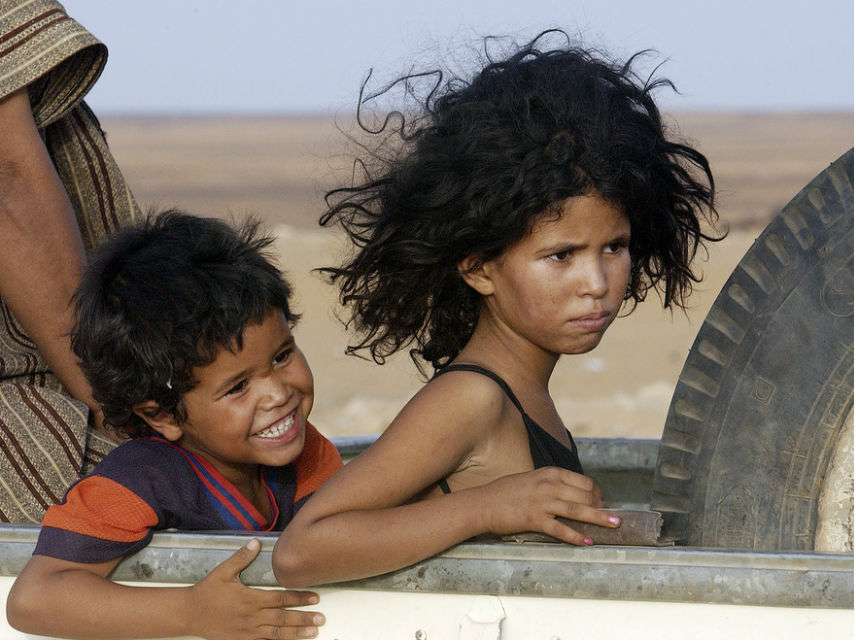Trump's New Travel Ban: Mean and Senseless
It will do nothing to Make America Safe Again
President Trump's revised travel ban can no longer be fairly characterized as a Muslim ban. But just because it avoids the overt appearance of

religious discrimination of the first couple iterations doesn't mean there's anything remotely rational about it. If anything, it shows that the president isn't really interested in "making America safe again." He mostly wants to settle scores with regimes he doesn't like.
Before the latest changes, Trump wanted to restrict travel from Sudan, Somalia, Syria, Yemen, Libya, and Iran. That ban was set to expire at the end of this month. The revised ban includes all those countries except Sudan, and bizarrely adds Chad, North Korea, and Venezuela. And there is no end date to it.
The administration maintains that it developed its list after a through worldwide review and targeted only those countries that don't comply with its minimal standards for improving security and identifying terror threats. For example, countries that don't already issue biometric passports to their citizens and share terrorism and criminal history with the United States (or haven't committed to doing so in the future) were included. And if they show progress, they could be removed from the list at some point. But the administration also admits that other broader considerations played a role.
At the level of politics, this list is clever. By adding North Korea and Venezuela, the administration dodges accusations that it is imposing a religious test on Muslim-majority countries while also sticking it to governments that the president has been tangling with for reasons that have nothing to do with terrorism.
At the level of policy, however, the new ban is cheap, cruel, and senseless.
It is cheap because it makes U.S. foreign policy a function of presidential whims and personal vendettas — not broader principles of what's good for the country or the world. There are many things wrong with the governments of North Korea and Venezuela, but their citizens haven't shown any inclination to come to America and harm Americans. (Stopping such would-be terrorists was the original rationale for the ban.) Indeed, North Korea doesn't even let its people leave the country lest it trigger a mass exodus of people trying to flee poverty and oppression. Last year, exactly 110 North Koreans came to the United States. If North Koreans actually could leave, America should embrace them with open arms, giving them safe passage rather than erecting barriers in their way. Depriving their communist dictatorship of victims, after all, might well be the quickest way of neutralizing the North Korea threat. Indeed, Soviet communism ended — without a single shot being fired — when the Berlin Wall fell and East Germans came pouring into the West in search of freedom and prosperity.
The ban's restrictions against Venezuela are more targeted, applying mostly to government officials and not the broader population. This is not as objectionable as banning citizens. But putting Venezuela on this list still smacks of mission creep and dilutes its original purpose. The simple reason State Department officials included it is to appease President Trump's disdain for Venezuelan President Nicolás Maduro, with whom he's been openly sparring.
The ban is cruel because, as Amnesty International's Naureen Shah points out, it bars "whole nationalities of people who are often fleeing the very same violence the U.S. government wishes to keep out." Syria, along with North Korea, faces a complete ban on all new entries. Some Somalis will be allowed to come to the United States for tourist or business purposes with "enhanced screening." But they will no longer be able to emigrate by obtaining green cards, except, presumably, in very limited categories where they have a substantial relationship with an American citizen, something that the courts have instructed the administration to respect. Ditto for Chad, Yemen, and Libya. The citizens of these three nations won't get tourist and business visas either, except on a very limited, case-by-case basis.
As if all of this is not bad enough, the administration is also planning to radically scale back America's already rather meager refugee program, which Trump suspended pending review upon assuming office. That means there will be virtually no usable options left for people stuck in these countries to come to America.
And that brings us to senseless. If these restrictions actually did make America safer, we could honestly debate the tradeoffs of such a ban. There would be a coherent and supportable argument on each side. But this ban won't make America for safer — for the simple reason that the people who the ban excludes didn't pose a big threat to begin with.
Americans' risk of dying in a terrorist attack perpetrated by a foreigner on U.S. soil is one in 3.6 million per year (and this includes the deaths that took place during the 9/11 attacks, whose massive casualty count is something of an outlier). The chance of being struck by a refugee is even lower. But the real kicker is that migrants from the banned countries have killed precisely zero Americans in terrorist attacks on U.S. soil between 1975 and 2015.
Shutting the door to millions of people without any appreciable security benefit for Americans isn't smart. It's hysterical.
This column originally appeared in The Week


Show Comments (77)